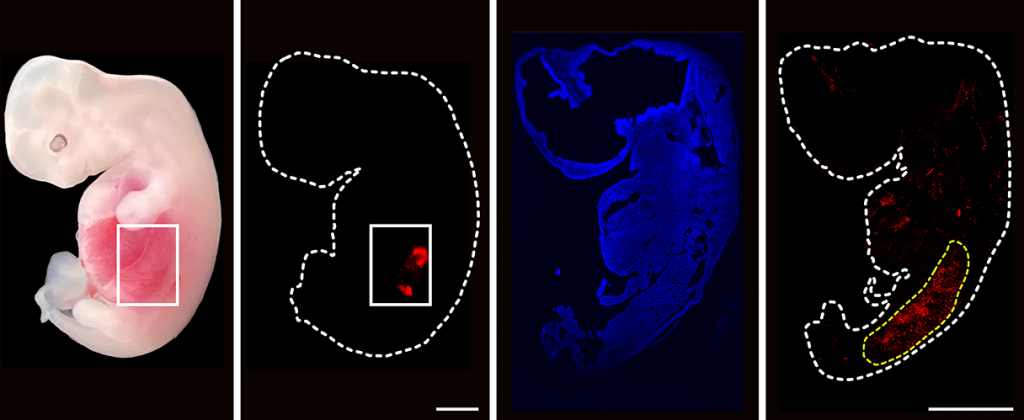
An Organ Crisis
As someone passionate about donating my organs when I die (since what better use is there for the loss of my life than to preserve the life of another), I was shocked to learn that despite 4025 organ transplants being carried out in the UK in 2016-17, 457 patients died on the transplant waiting list due to the shortage of transplantable organs, and that BAME patients are less likely to find a suitable donor than white patients. Increasing the supply of organs is imperative to saving lives.
Where Else Can We Source Organs From?
Initially, researchers looked into xenotransplantation, the transplant of animal organs into humans, and these procedures have had some limited success. Researching xenotransplantation introduced me to a new potential source of organs driven by advancements in stem cell technology: researchers are attempting to grow human replacement organs in animal ‘carriers’ by creating chimeras. The ability of early animal embryos to grow specific organs is genetically removed, and stem cells from the patient are inserted into the embryo in an effort to induce the stem cells to grow into these organs. In one experiment, some pig embryos successfully grew early kidneys with majority human cells. By using induced pluripotent stem cells, adult stem cells from the patient which have been ‘reprogrammed’ to revert to a pluripotent state, the risk of rejection and ethical implications associated with organ donation and stem cell use are avoided.

Ethical Concerns: Animal and Human Welfare
Not all ethical concerns are avoided. As a vegetarian who cares deeply about animal wellbeing, I am concerned about the welfare of the animals producing these organs. While I believe it is ethically correct to choose a person’s life over an animal’s life (it brings about the most ‘good’, as philosopher Jeremy Bentham would argue), millions of animals die yearly for the progression of medicine. Thousands more would do so for the growth of organs.
Some are worried about the potential of the stem cells forming sex cells, potentially resulting in chimera producing offspring with human genes, or brain cells giving the chimera a human ‘consciousness’, thus blurring the line between ‘human’ and ‘animal’. If a pig with human brain cells is produced, do we consider them human enough to be required ethically to do the most ‘good’ for them? Or are they still animal enough to be sacrificed for human health? These issues are summarised in this video by AJ+:
Another concern I have is disease transmission between the animal donor and human recipient: zoonosis. Although this is much less of a concern with this procedure than with xenotransplantation, individuals receiving these transplants will be significantly immunocompromised and, thus, more vulnerable to potential zoonoses from the transplanted tissue if the disease crosses the species barrier within the carrier animal so must be considered. I think we need to contemplate the mental well-being of the patient—the fear of disease compounded with the fear of rejection and stress of recovery may drive patients away from accepting animal-derived organs, as well as religious reasons if they are of a faith which prohibits the consumption of specific or all animals. I would struggle to make this decision due to my beliefs.
Due to the various ethical issues involved in organ growth in chimeras, I think many approaches should be considered for increasing the supply of replacement organs, emphasising a balance of animal welfare, ethics, and patient preferences. This is a good case study; what is the balance of ethics and progress that we consider acceptable?
Very well written, with an excellent format and images. You’ve included interesting statistics and related it to personal ideas which I love! Discussions are very well validated, leading to me questioning things after. Brilliant work!